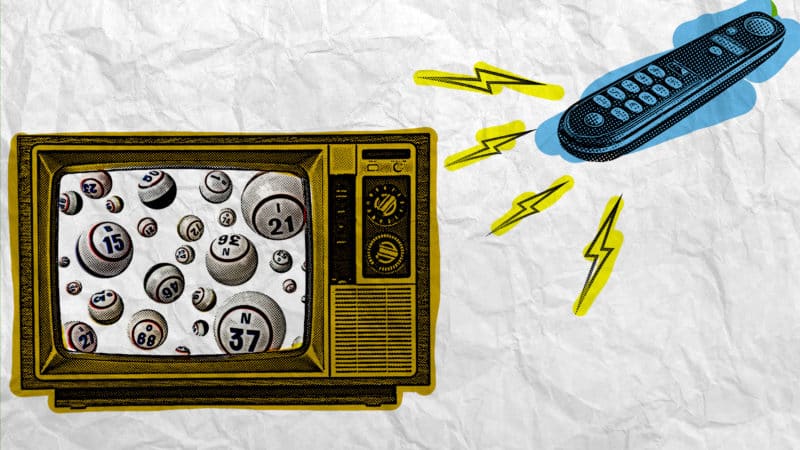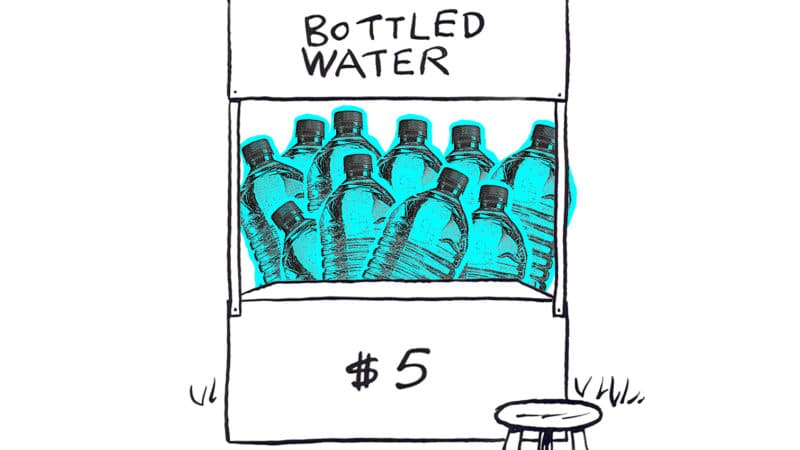Florida’s camping ban will only make it more difficult for people to escape domestic violence situations
By Mary Stewart
All I did was say no, and I should have known better.
He wanted the only lighter we had. Since I paid for it, and was sick of supporting two grown men, I wouldn’t give it to him. That earned me my second black eye over the course of our seventeen year marriage.
I took pictures of my eye as well as my bruised arm, courtesy of my argument the night before with my husband’s friend. But I didn’t call the cops, nor did I flee back to Florida or to a domestic violence shelter. I knew what I was getting into when I came back here to the Caralinas. I returned because of the tougher homeless laws in the Sunshine State.
Florida recently passed a new law banning public camping and lodging in public as a whole. I was in Sarasota at the time when DeSantis signed off on the bill. Sarasota County already had a history of arresting the homeless for public lodging and continues to enforce a ban on storing belongings in public.
Sarasota homeless services refused to help me when I was there because I wasn’t from there, and my home county of Palm Beach already said that there’s nothing more they can do for me. I’m on Supplemental Security Income and can’t afford housing and groceries without additional assistance, and now I’m not legally allowed to be homeless — at least not in Florida.
Overall, I don’t have it too bad where I am. I pitch a tent on my in-laws property, no one can arrest me or run me off because the land is owned by my family, and I go inside the house to use the kitchen, charge my phone, and spend time with my husband. If we get in an argument, I can simply go home to my camp.
He doesn’t often beat me up. Physical violence is actually a rarity. Most of the time, it’s just screaming, name calling, and demands. And I don’t really live with him.
I can’t due to the marriage penalty on my benefits and a conflict with the homeowner. We just live on the same property. I spend most of my time at my camp, but usually sleep on the porch with our dog as I’m afraid of the wildlife in our rural community.
I only returned to this unhealthy relationship because of Florida’s new camping ban. It makes me wonder how many other women may choose to stay with or return to their abusers simply to avoid homelessness.
People fleeing domestic violence is considered an entire category of homelessness under the Florida Department of Children and Families, the office that handles policy and funding for ending homelessness in Florida. Given the increases in the cost of living and demand for income-based housing and community resources, it may not always be realistic for women to leave their abusers — especially if they have children.
There have been domestic violence shelters in every town I’ve lived in. I can’t disclose the locations or identifying details, but I can provide an overview of how the domestic violence system works and what to expect in a shelter.
I’ve been married long enough to know when the tension is building, and I usually leave before the situation escalates to violence. I can speak from experience when I say that domestic violence shelters aren’t bad places, and they’re a lot less chaotic than homeless shelters, but each one is different.
Some domestic violence shelters I’ve lived in had rooms with bunk beds, and you shared the room with up to five other women and possibly their children. I’ve also been to one where you share an apartment with other survivors. Another shelter that I went to provided private bedrooms and bathrooms.
Domestic violence shelters do provide food, but you have to prepare it yourself. At one place, we took turns cooking for everyone and shared a community meal every night.
The other shelters I’ve been to would give each woman food from the pantry to prepare meals for herself and her kids. I must say there were a lot of dishes, but we took turns with that too.
Some shelters offer additional amenities, such as bus passes, clothing vouchers to go to a thrift store, and toiletries. Other shelters have on-site clothing closets. One shelter offered financial assistance and gift cards through a partnering agency, but the exact services that are offered vary greatly on the shelter.
This may come as a surprise, but like homeless shelters, domestic violence shelters also fill their beds up quickly, and you must complete an assessment to determine if you’re even eligible for shelter. You don’t necessarily need to file a police report or have a pending case against your abuser, but those things do help with eligibility.
If you do manage to get a bed in a domestic violence shelter, there will be rules that you need to follow, including a curfew. If you break the rules, you’re exited from the program. I actually got kicked out of a domestic violence shelter for a curfew violation that I had no control over.
The biggest problem with domestic violence shelters is that they only offer six weeks of shelter assistance. After that, you have to be able to stand on your own two feet or transition to another type of program, such as a homeless shelter, halfway house, or a U.S Department of Housing and Urban Development apartment.
Six weeks isn’t enough time for many women. Sadly, some of us have no choice but to return to our abusers or become homeless — and the latter is no longer an option.
Women, like myself, who can’t afford the increased cost of living and have barriers to self-sufficiency are stuck going back to unhealthy relationships. All the domestic violence shelters did for me was give me a much needed break and make me an expert at safety planning.
Every time that I left my husband to return to the streets, I used to tell people that I’d rather choose a tent than a coffin. It’s impossible to say whether or not domestic abuse will ever escalate to homicide, but it does happen.
For some women in my situation, it is a choice between life and death. But where are we supposed to go now? What are we supposed to do if we can’t afford independent living and homelessness is against the law?
If you’re in an abusive relationship, you can reach out to the domestic violence hotline to speak with an advocate and get a list of shelters in your area. You should also keep a go-bag packed with essentials and important documents in case you ever need to leave in a hurry.
Upon entry into a shelter, you’ll be assigned a caseworker to help connect you with resources. At least, you’ll stand a chance, but there’s no guarantee that you’ll be able to secure housing after you exit the program.
I have met women who successfully left their abusers and are doing well. For others, like myself, the resources just weren’t available.
The new camping ban in Florida will undoubtedly have negative impacts on a lot of homeless people. I do personally believe that it will reduce homelessness in Florida — those who aren’t fortunate enough to land good jobs or get long-term assistance will likely relocate out of the state.
And as for women like myself, we either need more resources and a longer-term housing option or we’re going to have no choice but to stay with our abusers. Oh, well. At least, we won’t be homeless.



